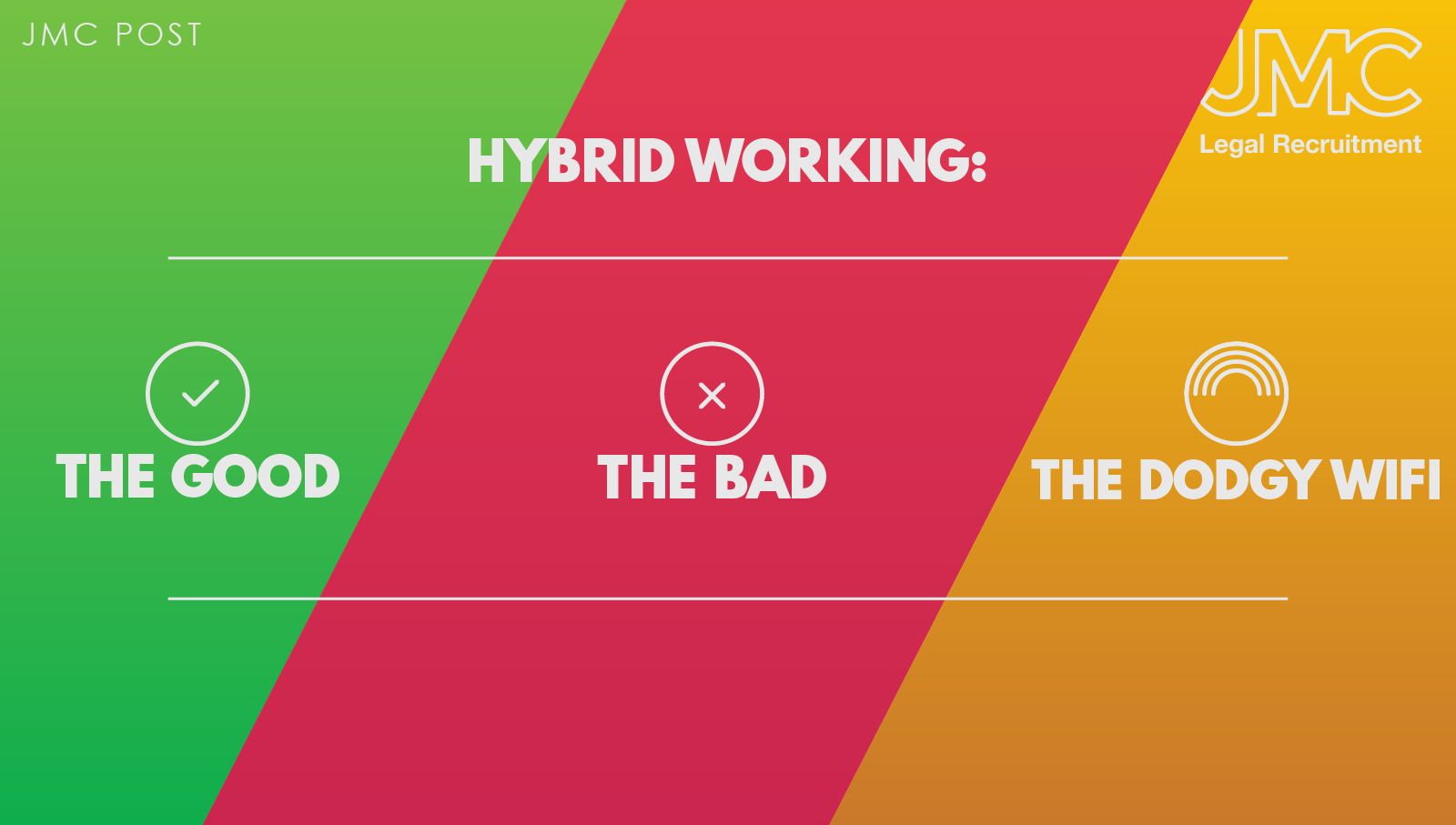
Hybrid Working The Good, The Bad, and The Dodgy Wi-Fi
12 Feb, 20255 minutes
⚖️ Hybrid working in 2025: Does it work for you?
Hybrid working is now the norm for many of us. More than a quarter of UK workers split their time between home and the office, and in law, 63% of professionals now favour flexible hours – up sharply since pre-pandemic days.
For some, hybrid working has been life-changing (goodbye, commutes! 🏠). It’s easier to juggle deadlines, client calls and life admin without the grind of daily travel. But it’s not without challenges. You can’t build rapport over dodgy Wi-Fi, and junior lawyers miss out on those spontaneous “corridor conversations” that spark ideas or solve problems on the spot.
This all leads to a key question: is hybrid working helping or hindering career progression?
Some argue it dilutes networking and visibility, but others see benefits: better productivity, a more diverse workforce and improved wellbeing. It also raises questions for law firms. Are clients still looking for face-to-face interactions, or are virtual meetings the new normal?
Ian Bagshaw of Perkins Coie notes that “virtual working is not as effective as physical working in terms of collaboration, culture, learning and building a team,” But law firms enforcing office attendance risk presenteeism and losing top talent who crave flexibility.
Perhaps the answer lies somewhere in the middle.
Does hybrid working work for you? Or is it time for law firms to rethink the balance? Share your insight in the comments! 👇




